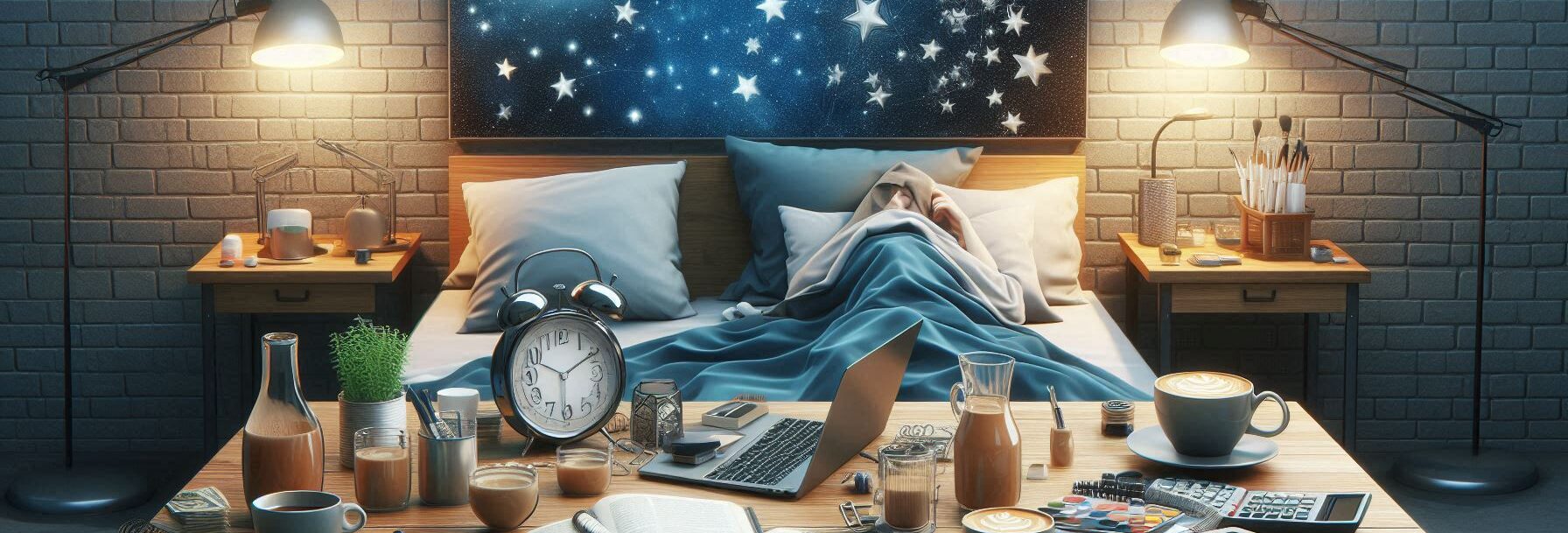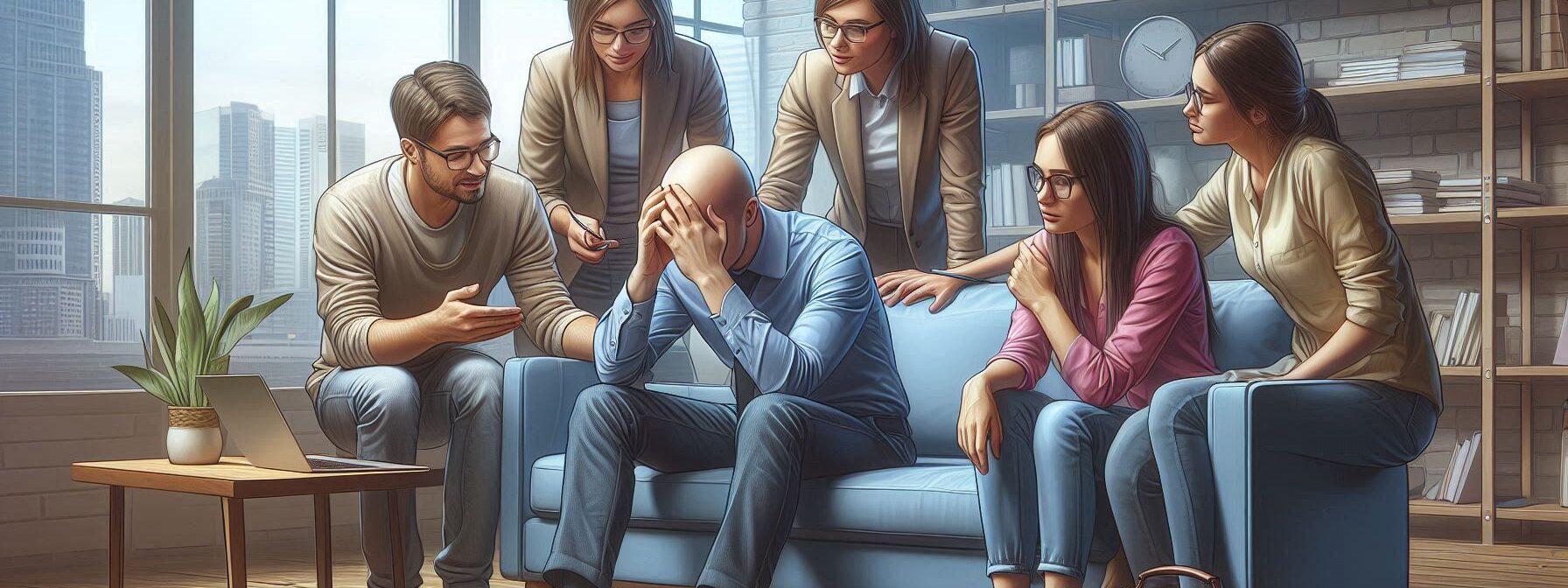Let’s talk about sleep hygiene. No, it’s not a fancy term for washing your pajamas or ensuring your pillowcases are fresh (although that helps too).
It’s about creating the perfect environment for catching those elusive Z’s—especially when you’re trying to keep your mental health in check.
If you’ve ever tossed and turned like a fish out of water, you know how crucial good sleep is. So, grab a cozy blanket and let’s dive into this snooze-fest!
Top Takeaways and Key Concepts
- Prioritize sleep hygiene by developing consistent habits and practices for quality rest.
- Create a sleep-friendly environment by controlling light, noise, and room temperature.
- Establish relaxing bedtime routines, avoiding screens and engaging in calming activities.
- Recognize that insufficient sleep worsens stress, anxiety, and depression symptoms.
- Seek professional help if insomnia or depression persists despite implementing healthy sleep habits.
Summary of This Article
The article emphasizes the importance of sleep hygiene for supporting mental health and overall well-being. It explains how consistent habits, a conducive sleep environment, and relaxing bedtime routines can improve sleep quality and emotional regulation. Poor sleep is linked to increased stress, anxiety, and depressive symptoms, highlighting the need to prioritize rest. Additionally, the article encourages seeking professional guidance when sleep difficulties or depressive symptoms persist, ensuring that individuals receive tailored support for optimal mental and emotional health.
What Is Sleep Hygiene Anyway?

First off, what exactly do we mean by “sleep hygiene”? Well, it’s basically the collection of habits and practices that lead to consistently good sleep quality.
Think of it as brushing your teeth before bed but way more fun! And honestly, who wouldn’t want to set themselves up for a night filled with dream sequences worthy of an Oscar?
Imagine preparing for bedtime like you’re getting ready for a big date. You wouldn’t show up wearing yesterday’s clothes (unless you’re me on a lazy Sunday).
Instead, you’d pick out something comfortable and maybe even spritz on some nice-smelling stuff. Good sleep hygiene is about creating an atmosphere where your brain can relax instead of running around like it just drank five cups of coffee.
By the way, I think many people underestimate how much their sleeping environment affects their overall well-being. A cluttered room?
That’ll make your mind feel chaotic too! So clear out those old pizza boxes and sock puppets; it might just be the ticket to better sleep.
Why Sleep Matters for Mental Health
Now let’s get serious: why should we care about our beauty rest? Well, lack of sleep can turn anyone into a grumpy troll living under a bridge—trust me!
Studies have shown that insufficient sleep can exacerbate symptoms of anxiety and depression. It’s like adding fuel to an already roaring fire.
Think about it: after a night of tossing and turning, how likely are you to face the day with enthusiasm? More likely you’ll be dragging yourself around like a zombie looking for brains!
When we’re tired, our emotional regulation takes a hit; little things that normally wouldn’t bother us suddenly feel monumental—like discovering there’s no coffee left in the pot.
Interestingly enough, research has found that people who maintain healthy sleep patterns tend to report lower levels of stress and better mood stability. So if you want to be less cranky than a toddler denied dessert, prioritizing sleep is key!
Creating Your Sleep Sanctuary
Alright folks, here comes the fun part: transforming your bedroom into a sleep sanctuary! This isn’t just about fluffing pillows or choosing cute sheets (though that’s definitely part of it).
Start by making sure your room is dark enough—think cave level darkness. If light from street lamps or passing UFOs keeps interrupting your slumber party, consider blackout curtains or eye masks.
Next up: temperature control! Let’s see…if Goldilocks taught us anything, it’s that finding the right temperature is crucial—not too hot like lava flowing from Mount Doom and not too cold like Antarctica either.
A cool room often leads to deeper sleep because our body temperatures naturally drop while we snooze.
Oh! And let’s not forget noise levels. If you live near train tracks or have neighbors who think they’re auditioning for “America’s Got Talent” at 3 AM—you might need some white noise machines or earplugs.
Personally, I find listening to soothing sounds makes me feel all zen-like instead of panicking over my neighbor’s questionable karaoke skills.
Establishing Bedtime Routines
Speaking of rituals… establishing bedtime routines can work wonders! Just as kids thrive on structure (and ice cream), adults benefit from predictable wind-down periods too.
Consider setting aside time each evening dedicated solely to relaxation activities—reading books that don’t require deep thought (no textbooks allowed!), sipping herbal tea as if you’re at an upscale café rather than in sweatpants at home—or practicing gentle stretches.
Honestly though, one thing I’ve learned through trial and error is avoiding screens before bed is essential. Those bright lights trick our brains into thinking it’s still daytime—even if you’ve been binge-watching cat videos until 2 AM!
Try replacing screen time with activities that promote calmness instead; perhaps try journaling about all those ridiculous things you did during the day!
Seeking Professional Help When Needed
Now look—I’m all about DIY solutions but sometimes we need help from professionals who understand mental health intricacies better than any self-help book could provide (sorry self-help books!).
If insomnia persists despite implementing these changes or if depression feels overwhelming regardless—it may be time to reach out for support!
Therapists can offer insights tailored specifically towards individual needs while helping identify underlying issues affecting both mood & sleep quality together—because sometimes they go hand-in-hand worse than peanut butter & jelly!
So remember: taking care of ourselves includes recognizing when professional guidance becomes necessary—and that’s perfectly okay!
Final Thoughts on Sleep Hygiene
In conclusion (yes folks—I am wrapping this up!), prioritizing good sleep hygiene is essential not only for waking up refreshed but also maintaining optimal mental health overall!
Remember creating an inviting space conducive toward restful slumber allows us greater opportunities facing daily challenges without feeling overwhelmed by fatigue-induced grumpiness.
So, let’s put down those late-night snacks demanding attention from Netflix & embrace healthier nighttime habits instead! After all—a well-rested mind may just unlock new levels happiness we didn’t know existed!
Suggested Resources:
Sleep Foundation
https://www.sleepfoundation.org/sleep-hygiene
National Institute of Mental Health
https://www.nimh.nih.gov/health/topics/depression/index.shtml
American Psychological Association
https://www.apa.org/topics/sleep
Frequently Asked Questions
What is sleep hygiene?
Sleep hygiene refers to the habits and environmental factors that support consistent, high-quality sleep, helping your mind and body function at their best.
How does poor sleep affect mental health?
Poor sleep increases stress, anxiety, irritability, and depressive symptoms by disrupting emotional regulation and reducing the brain’s ability to cope with daily challenges.
What are the key elements of a good sleep environment?
A good sleep environment includes minimal light, reduced noise, and a cool, comfortable room setup that encourages deeper, more restful sleep.
Why are bedtime routines important?
Bedtime routines signal to your brain that it’s time to wind down, helping reduce mental stimulation and improving your ability to fall asleep naturally.
How does screen use before bed impact sleep quality?
Screens emit blue light that tricks the brain into thinking it’s daytime, making it harder to relax, fall asleep, and stay asleep.
What practical habits support better sleep hygiene?
Calming activities like reading, light stretching, reducing clutter, and maintaining a consistent sleep schedule all contribute to healthier sleep patterns.
When should someone seek professional help for sleep issues?
If insomnia, depression, or persistent sleep disruptions continue despite healthy habits, professional evaluation can help identify underlying causes and treatment options.

Kevin Collier is a passionate mental health advocate and writer for SadFAQ.com, where he explores the complexities of depression and mental well-being. With a deep understanding of mental health challenges, Kevin provides compassionate insights and practical advice to help individuals navigate their journeys toward healing. His articles aim to destigmatize mental health issues, offering support and resources for those seeking to improve their emotional resilience. Committed to raising awareness and fostering open conversations, Kevin’s work empowers readers to prioritize their mental health and seek the support they deserve.




